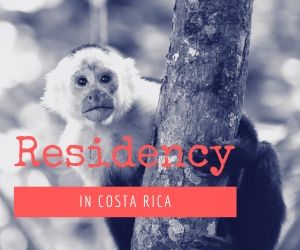Those croc tours can certainly be very entertaining, especially if you get to see one of them feeding up close and personal. However, even if one the crocs DOESN'T wind up attacking you instead of the BAIT some of those tours use, everyone should SERIOUSLY consider the great environmental harm such tours can cause before deciding to go on one themselves.
The best and most RESPONSIBLE way to see crocs is either close up at a zoo in a properly constructed pen or, if in the wild, from a safe and respectful distance (like from the Tarcoles River bridge, which also happens to be free). The WORST way to see them, environmentally speaking, is on one those tours that actually lure crocs closer to their boats using live or even thawed frozen chickens or else pursue them and invade their space to give their participants the close-up view they think they expect. Unfortunately, it is exactly those sorts of tours that provide the greatest thrills for its participants and are thus the most popular.
Why are there tours so potentially environmentally damaging?
When humans feed crocs, those crocs lose their natural fear of humans (making them easier targets for poachers) and in fact begin to associate humans with food (even when all they're holding in their hands are cameras). Maybe this particular tour hadn't been feeding any crocs (though it was taunting it with a bangstick), but other tour outfits operating in the same area might have been. Forty percent of crocodiles killed after they attack people have unnatural food in their guts…meaning they were being fed by humans. Humans, at least adult ones, are the most unnatural food of all for crocs since they're much too large a prey (nearly half of all humans killed by crocs are Ch*ldren under the age of 12). In the natural environment, crocs would avoid humans and would only attack if it felt it was being attacked.
Beyond the effect of these tours on the croc's interaction with humans are possibly even more significant effects on the crocs themselves and the ecosystem in which they operate. When crocs get a steady diet of supermarket chickens, two things happen. First, they get fat and lazy (especially if fed KFC

). Secondly, they become malnourished because that unnatural diet does not provide the varied nutrition that they have evolved to depend on. The effect on their environment can be even more damaging. Crocs serve an important role as the apex predator in their ecosystem and play a vital role in maintaining a healthy, wetland mangrove habitat.
Quote:
Crocodiles .... keep down small mammal populations, such as rats and raccoons; as nest builders, they dig holes aerating the soil and carefully construct nests from vegetation which over the years adds land to mangrove areas and when their nests break down into peat, a moisture-absorbing plant matter that acts as a natural fire retardant; they control non-game-fish populations, such as catfish and eels, which otherwise would overpopulate and decimate resources for game-fish; when they travel from one place to the next over land, their heavy bodies make trails through the mangrove that are important for water flow; and they dig croc-holes to stay cool in during dry season which also provide refuge for crabs, fish and turtles. Perfectly adapted to their environment, these millions of years old modern day dinosaurs are truly happiest when they are just left alone to do those things crocodiles do.
(source:
http://sanpedrosun.net/old/08-374.html)
When crocs find an easy source of food (like hand-fed chicken), they concentrate in those relatively small areas where that food can be found instead of distributing their population more widely and naturally throughout the wetland system and as a result all those above benefits disappear. Their natural prey grow in numbers, the geological, hydrological and botanic effects do not occur as they normally would and the ecosystem gets thrown out of its natural balance.
You guys can participate in these so-called "eco-tours" if you want, but personally I would boycott them myself. However, if you DO decide to join one of these tours, at least ask a few questions about their environmental practices (like whether they're one of those assinine tours that actually feed the crocs to lure them closer to the boat and ensure they put on a good show) and don't go with them if they don't practice at least SOME environmental sensitivity. It may not be quite as thrilling as one of those tours that actually lure the crocs into lunging into the boat, but it should be thrilling enough.









